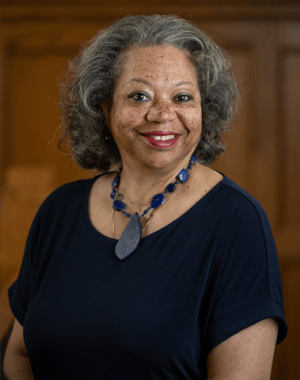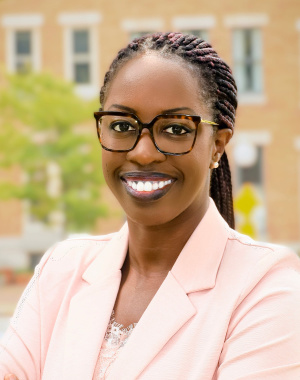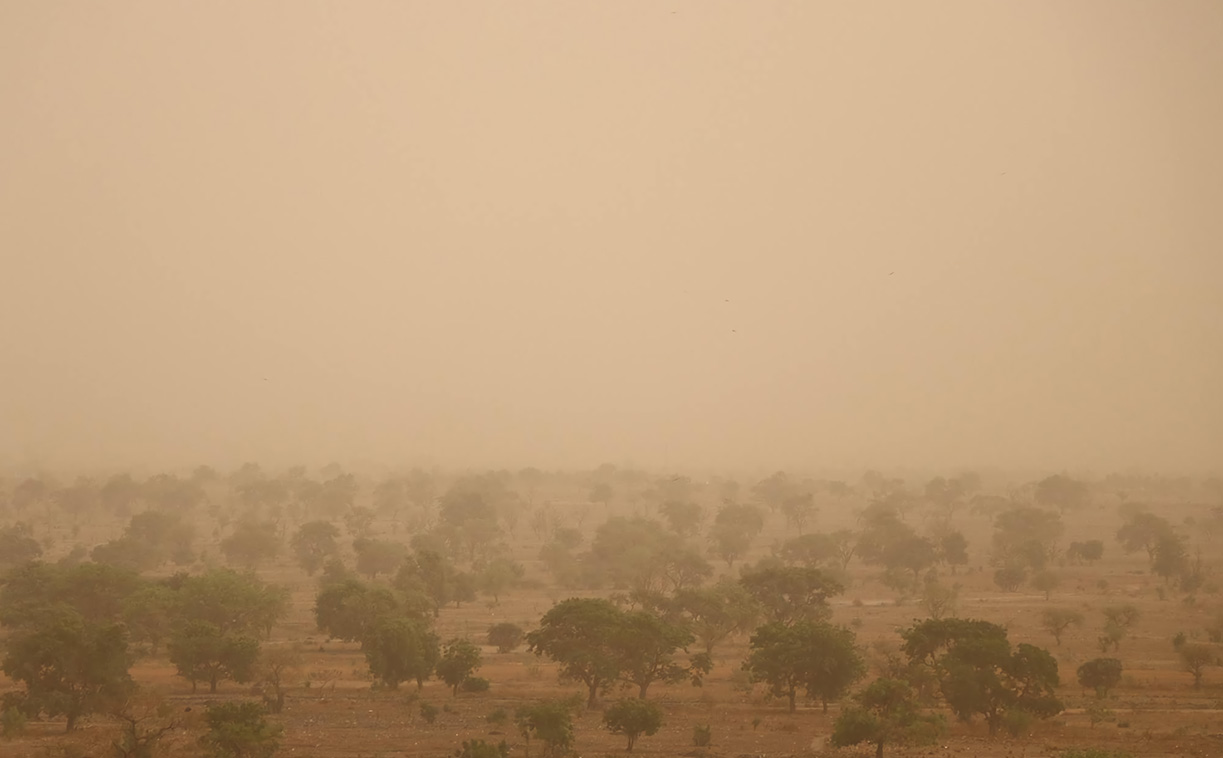
Susan D. Page and Kamissa Camara in discussion
An alarming number of countries in Africa have been experiencing coups over the past few years—a total of nine coups in three years—in Sudan, Burkina Faso (twice), Chad, Guinea, Mali (twice), and more recently Niger and Gabon.
Now policymakers around the world refer to the “Coup Belt,” which runs across the continent from Guinea to Sudan. It’s an unfortunate phrase which sadly encompasses the state of play.
The Ford School’s faculty boasts two deeply experienced practitioners of statecraft and diplomacy:
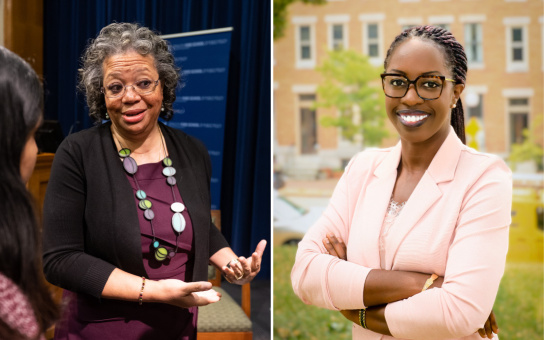
Ambassador Susan D. Page, Weiser Diplomacy Center director, served as the first U.S. ambassador to South Sudan and as acting U.S. ambassador to the African Union and the U.N. Economic Commission for Africa, as well as holding senior U.N. roles in Sudan and Haiti.
Kamissa Camara, professor of practice, held a number of senior roles in the government in Mali, including as foreign minister and presidential chief of staff.
We asked for their insights into the current situation.
State & Hill: Each of the circumstances were different, but there are some common themes— they were done in the name of stability, or against corruption, or to shore up security. Can you walk us through those? Can you give us particular insight into the two countries you know best—Sudan and Mali?
Susan D. Page: In the case of Sudan, first the overthrow of long-time strongman Omar al-Bashir led to a failed civilian government. The two military and quasi-military leaders who took over couldn’t work with each other and refused to allow the civilians to lead a real democratic transition.
Kamissa Camara: As in Mali, the military leadership often cites a litany of reasons to justify their intervention, such as corruption, poor governance, and rampant insecurity. However, there are often personal motives at play behind the scenes. In essence, the triggers for military coups can be complex and multifaceted, so it is wise not to take the initial proclamations of coup leaders at face value.
S&H: In many of these countries, the juntas have said they would cede power democratically. That hasn’t worked out in Sudan. Mali has just delayed any elections citing security concerns. And what are the prospects for the others?
SDP: It’s honestly hard to tell. We often forget that these countries’ militaries were formed directly from their colonial predecessors, so the new nations had no desire to have the militaries be an independent branch led by civilians. It is not the same type of institution that we in the West are accustomed to thinking of.
KC: Why should anyone believe the earnest declarations of someone who has unlawfully seized power? These military figures are smart; they recognize the desires and pressures of the international community and seemingly play into them. And they clearly signal that their allegiance lies primarily with their citizens. So if domestic negotiations allow them to extend beyond their initially stated timeframe, they won’t relinquish power according to an external timetable.
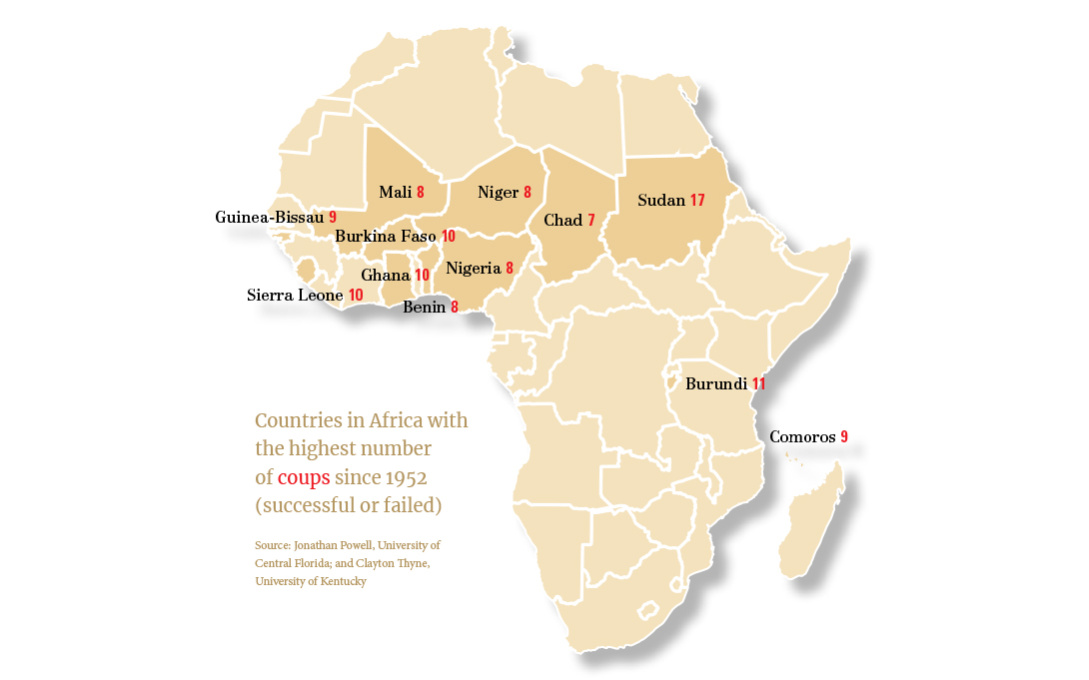
S&H: There are global geopolitics involved in many of these situations as well—Chinese investment, the mercenary activities of the Wagner Group (which now has been replaced by the Russian military), and the ejection of French forces. It seems like a new type of Cold War combined with the old colonialist “Scramble for Africa.” How would you characterize it?
KC: Taking Mali, Guinea, Burkina Faso, and Chad as examples, there’s a generational shift in the leadership. The coup leaders are far younger—almost half the age—of the presidents they ousted. Consequently, their worldview significantly diverges from that of the previous leaders. On a geopolitical scale, the tensions between the U.S. and France, observable in nations like Niger, undoubtedly signal a tugof-war for regional influence. As for the Wagner group, I interpret it as a fleeting dalliance, which, from my perspective, has already revealed its limitations.
SDP: I think that the U.S. has to put in place its own policy. It is past time that the U.S. stopped behaving in the exact same way in Africa as the French. We have been following France’s lead across the Francophone countries, on issues like fighting terrorism or economic independence, even when those countries have asked for a new set of priorities. If we don’t change, we’re going to find ourselves ousted right alongside the French.
S&H: Finally, how can this seeming instability be contained? What needs to happen in the countries, and what can the international community do to encourage and help those processes?
KC: This is a challenging question to address. One of the underpinnings of the instability is the burgeoning resentment of a youth population projected to double in size over the next two decades. To me, the solution lies in harnessing the potential of the private sector. An educated youth, confident in a promising professional trajectory, will be motivated to enhance their neighborhoods, establish private healthcare facilities for their families, and ensure that the educational infrastructure is robust enough to equip future generations with the skills they need to thrive.
SDP: I agree that African citizens don’t want to see these leaders stay in power, taking everything for themselves. The other thing is we’re fighting an ideology. So if we’re going to try to fight terrorism, we cannot only do that militarily. We need more efforts on civil society and actually supporting the people who are trying to put in place better rules, better accountability, instead of just blindly supporting the military.
We have to remember that it’s not only China and Russia, there’s Turkey, the UAE, Saudi Arabia, and others. So, it is tricky. The world is much more interconnected than it was during the original Cold War, and we need to wake up and realize that too.
By Daniel Rivkin
More in State & Hill
Below, find the full, formatted fall 2023 edition of State & Hill. Click here to return to the fall 2023 S&H homepage.

